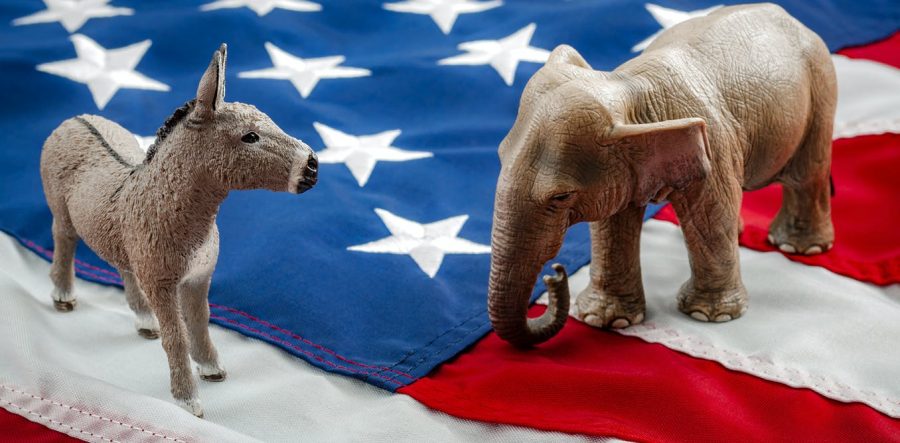Donald Trump is gone. Now what?
For four years, it seems the Democratic Party has largely been drawn together by one shared interest: removing Donald Trump from power. This objective was the main message used during the Democratic National Convention, following the divided months of the primaries, and acted as a strong glue for the party throughout the 4-year term.
It was an effective rallying call, even just seeing how dozens of Democratic candidates with scattered focuses on national issues and a diverse range of policy ideas found a way to assemble as one united force by summer to prepare for the election.
And, as we know, the tireless campaigning for unity and kicking Trump out worked—after tensions peaked with the nail-biting 2020 election, the party saw a triumphant victory that prompted celebration through much of the country.
But there are two issues the Democratic Party will need to consider moving forward.
For one, there’s quite a sizable range of beliefs just within the party on the “Moderate-to-Progressive” scale. Though criticizing Trump built some bridges, these divides became just a bit more visible following the election in November as Democrats lost seats in the Senate and House. Finger-pointing for who was to blame—the “Moderates” or the “Progressives”—rose, spurring debates on which direction the party should follow. It was an unavoidable reminder of how divided the party still stands on critical points, from approaches for addressing the country’s issues to fundamental mindsets.
And beyond that, while the Democratic Party has formed a comprehensive platform and set of beliefs, it seems discussions for their ideas often get sidelined or go unheard. The party is often pushed into a defensive stance, from the Congress floor to the presidential debate stage.
This might be most clearly seen in the fierce battles we’ve seen to protect previously-gained protections for sexual assault victims under Title IX or reproductive rights for women. Though calls for a Green New Deal, Medicare for All, or a $15 federal minimum wage are constantly voiced by progressive lawmakers, they seem to shrink as Moderate Democrats and centrists hesitate in their support. This hesitation leaves enough room for the opposing party to wedge in doubt and uncertainty, brushing progressive policies aside as “radical” and “socialist.” As right-leaning politicians chip away faith in progressive policy ideas, opportunities can then be found to chip just a little more—whether that means challenging Planned Parenthood or rolling back dozens of environmental regulations previously put in place.
On the presidential debate stage last October, we saw a healthy portion of the time sucked away to discussions regarding election security and potential fraud. Despite expert after expert, study after report reaffirming the security of the election, the former President’s favorite accusation managed to take valuable time that could have been used to discuss policy ideas and solutions. This isn’t necessarily to blame the Democratic Party, or anyone other than the conspirators, but to highlight how one subject (that looks to sow doubt and concern) can displace constructive, forward-looking conversation.
Moving forward, this party needs to do a little soul-searching. This party needs to redefine its vision, goals, and get as many people as possible on board without hesitations or slowing down. Only then can they drive the bus of discussion and progress ahead, getting their ideas heard, normalized, and accepted. Otherwise, the party runs the risk of remaining reactionary and defensive in fending off conservative digs at existing policies.
This could be the turning point, where the Democratic Party redefines itself and asks: What do we stand for? How can we drive the discussion instead of reacting to it?
My mind flickers back to U.S. history in junior year, when we learned about the Whig Party. Among the Whig leaders were Henry Clay (a nationalist) and John Calhoun (a sectionalist), and their direct contrast was a representation of how diverse the party was. They were brought together and strongly united by their shared opposition to Andrew Jackson and his excessive executive strength… but, in the end, it wasn’t enough.
Further reading: https://www.opendemocracy.net/en/transformation/how-fight-fascism-position-strength/
https://www.nytimes.com/2020/11/28/us/politics/democrats-republicans-state-legislatures.html
https://www.nytimes.com/2020/12/02/opinion/biden-trump-moderates-progressives.html

(she/her/hers)
Anna Ryu is the Editor-in-Chief of The Shaker Bison. As a senior, this is her fourth year participating in Shaker’s school newspaper....


